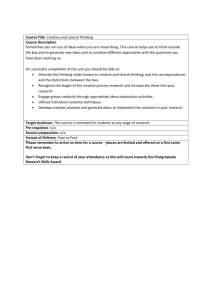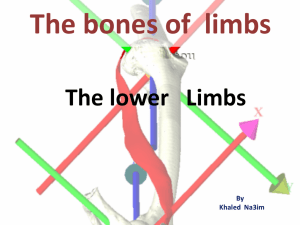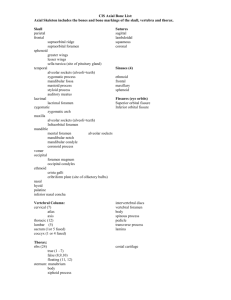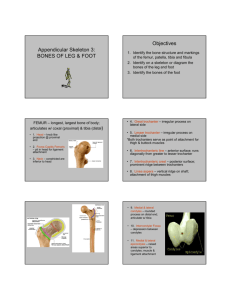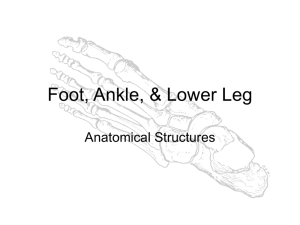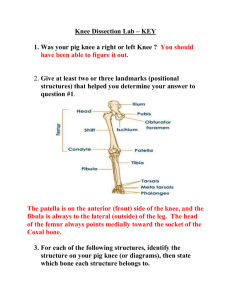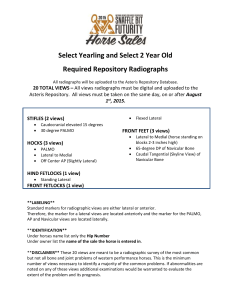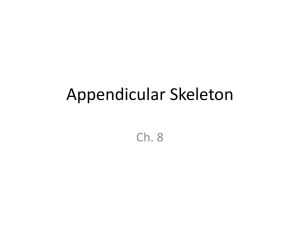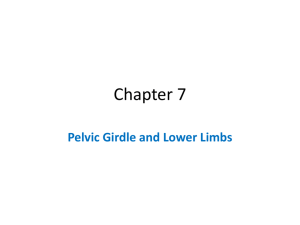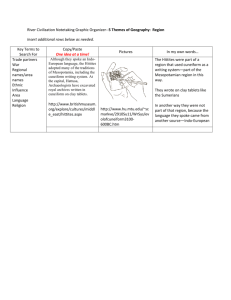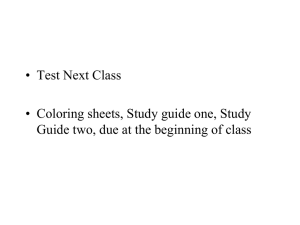Lower Appendicular Skeleton
advertisement
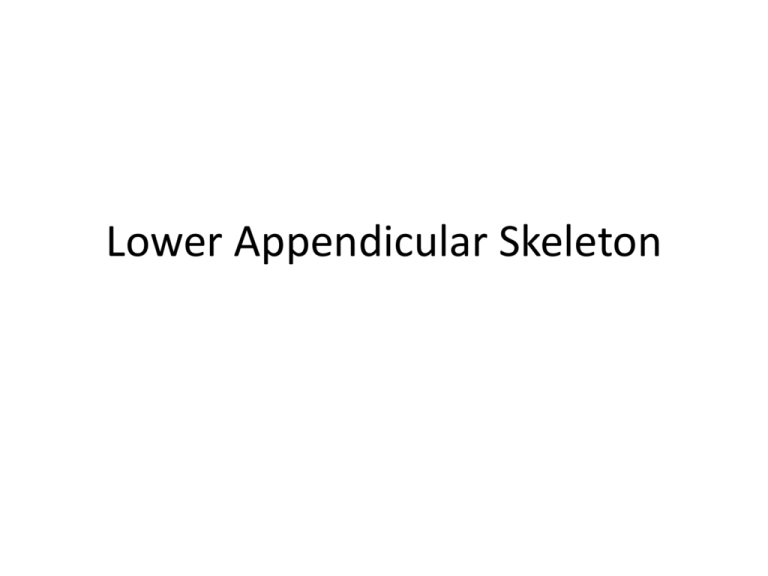
Lower Appendicular Skeleton Pelvic Girdle • Composed of sacrum, coccyx, and 2 coxae (hipbones) • Coxae have 3 distinct parts: – Ilium – Ischium – Pubis • Coxae parts fuse together in the acetabulum(acetabul-), a cup-shaped area on the lateral surface of the hip that receives the head of the femur. Ilium • • • • Largest and uppermost portion of the coxa The upper edge is called the iliac crest Joins the sacrum at the sacroiliac joint Anterior superior iliac spine- the bony prominence you feel as your “hipbone” Ischium • Forms the lowest portion of the coxa • Ischial tuberosity – Points posteriorly AND downward – Supports the weight of the body when sitting • Ischial spine – a sharp projection above the ischial tuberosity, near the junction of the ischium and ilium Pubis • Anterior portion of the coxa • Two pubic bones join midline at the symphysis pubis joint • Pubic arch – Angle formed by pubic bones below the symphysis pubis – Arch is wider in females Male vs. female Lower Limb • • • • • • Femur Tibia Fibula Tarsals Metatarsals Phalanges Femur • • • • • Longest and strongest bone in the body Head at top fits into __________of coxa Greater trochanter – superior, lateral process Lesser trochanter – inferior, medial process Distal end: – Two rounded processes posteriorly: lateral condyle and medial condyle – Patella articulates anteriorly Tibia • aka, “shin bone” • Proximal end: – Medial and lateral condyles are concave and articulate with condyles of the femur – Tibial tuberosity just below the condyles; attachment point for patellar ligament • Distal end: medial malleolus forms prominent bony point of inner ankle Fibula • Proximal: head – Articulates with tibia just below the lateral condyle – DOES NOT enter into knee joint or bear any weight • Distal: lateral malleolus forms outer prominent bony part of ankle Ankle “Tarsals” • “Tiger Cubs Need MILC” • Talus Calcaneus (“heel bone”) Navicular Medial cuneiform Intermediate cuneiform Lateral cuneiform Cuboid “MILC: Need The Calcium” • • • • • • • 1=Medical Cuneiform 2=Intermediate cuneiform 3=Lateral cuneiform 4= Cuboid 5= Navicular 6= Talus 7= calcaneus Foot • 5 metatarsals – numbered 1-5 starting medially – Heads at distal ends form the ball of the foot • Phalanges – Toes – Each toe has 3 phalanges, except the big toe – What are the phalanges of each toe called? (HINT: Just like the fingers) – Which phalanx is the big toe missing? • https://resources.oncourse.iu.edu/access/content/group/FA09-KO-OTHR-PRAC18273/Helpful%20Websites/Nicole_s%20Website%20Pages/Bones/Foot-tarsals.JPG
